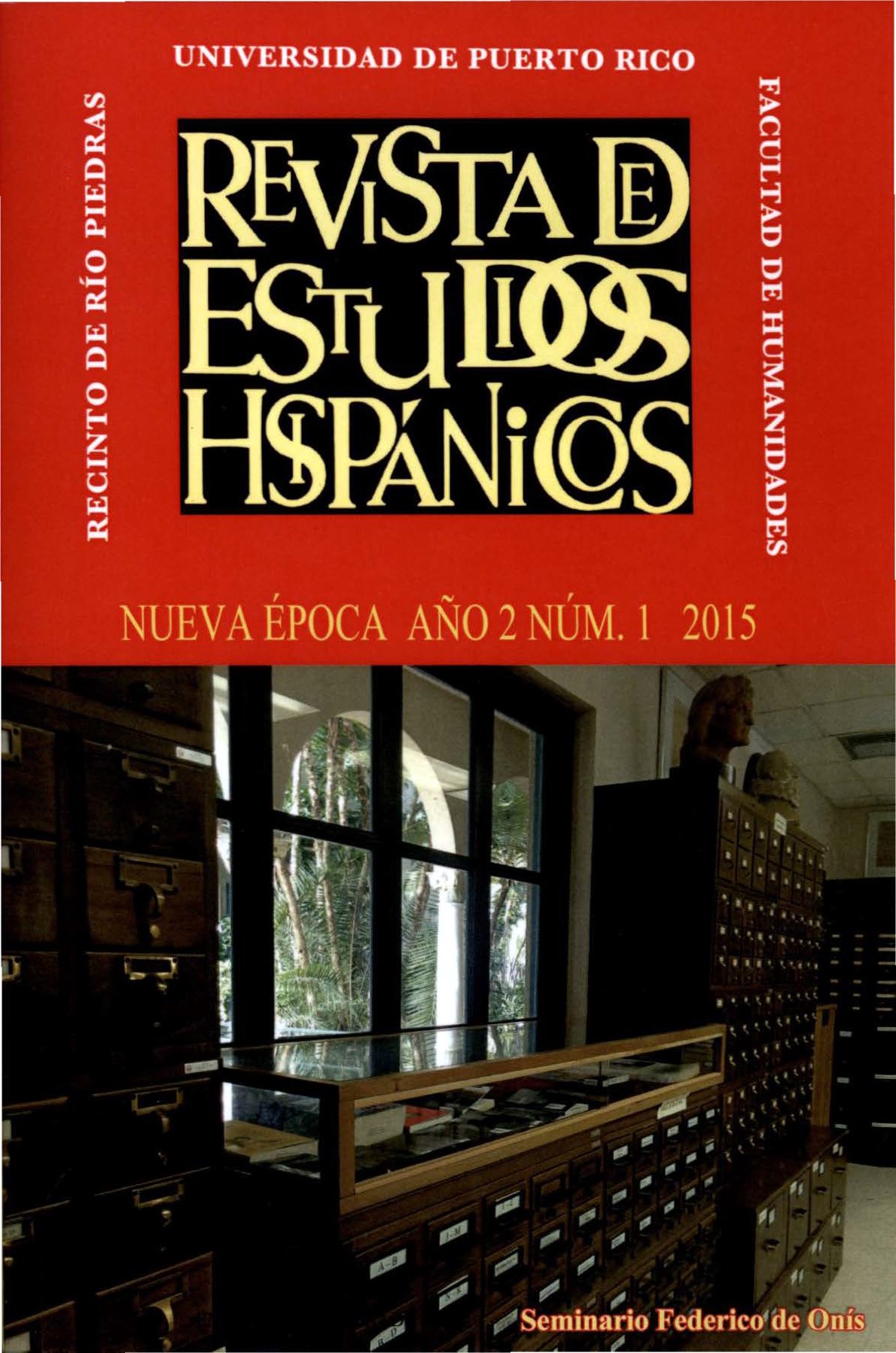Abstract
This article examines the long poem La Sataniada (1878) by Puerto Rican author Alejandro Tapia in terms of both content and form. It discusses the limitations of previous studies and demonstrates the axis of the text is the dilemma of Nineteenth-Century European liberalism that sought to dismantle absolutism while avoiding the excesses of revolution and Jacobinism, to criticize the cult of moneyed wealth without promoting anti-bourgeois rebellion, and to attack the privileges of the Catholic Church without embracing atheism. The article examines how this dilemma is also present in other works by Tapia, such as Mis memorias and Póstumo el transmigrado. It examines how the combination of bold mix of epochs and historical figures with the strict adherence to an invariable strophic forro (around one thousand octavas reales) also corresponds to that wish for political change while avoiding its possible excesses.
This work is licensed under a Creative Commons Attribution-NonCommercial 4.0 International License.

